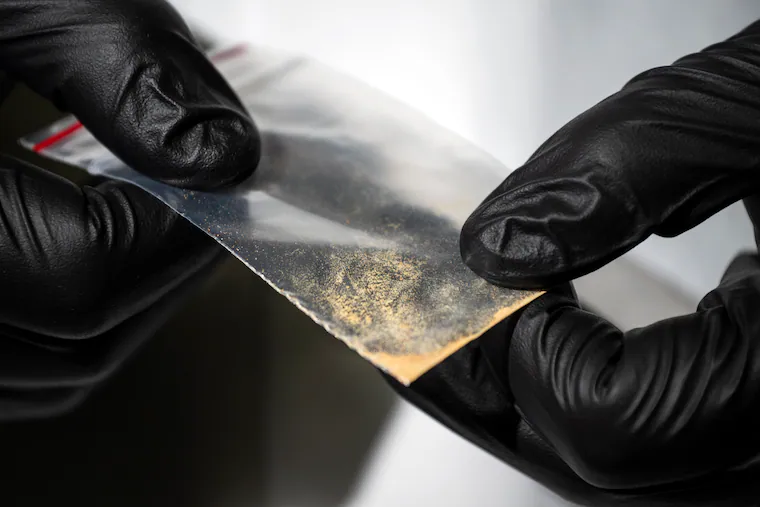Copyright The Philadelphia Inquirer

Pennsylvania Republican Sen. David McCormick is co-sponsoring a new bill that would permanently tighten restrictions of an emerging group of opioids, known as nitazenes, that are more potent than fentanyl. Under the proposed legislation, opioids classed as nitazenes would become Schedule I drugs, substances that the federal government considers highly addictive, with no accepted medical uses. They are subject to the highest level of restrictions under federal law. Nitazenes are a class of highly potent opioids up to 40 times more powerful than fentanyl, another synthetic opioid that is behind most of Philadelphia’s overdose deaths. They were first detected in Philadelphia in 2022, though it’s difficult to track the extent to which nitazenes have spread in the area’s drug markets. Health officials found they were present in five fatal overdoses in the city between 2022 and 2024 and may have contributed to at least a dozen more deaths in that time period. In some of these cases, overdose victims were also found to have taken fentanyl, xylazine, and other drugs. It’s unclear whether those drugs were combined by dealers and sold together, health officials said, or whether victims combined them knowingly. McCormick said in a news conference Thursday that he was concerned nitazenes “would become the next fentanyl.” Several nitazene analogues are already temporarily classified as Schedule I drugs, but the new legislation would permanently schedule the entire class of drugs. He said that cracking down on the entire class of nitazenes is necessary to stop drug traffickers from selling slightly different versions of the drugs to get around stricter regulations. “This isn’t something we can let play out like we let the fentanyl crisis play out,” he said. “We hope we can avoid this becoming the next generation of potent drugs in Pennsylvania.” McCormick said that there is also interest among legislators to similarly restrict two animal tranquilizers, xylazine and medetomidine, that have become widespread in Philadelphia’s drug supply with devastating consequences. Xylazine, or tranq, causes severe withdrawal symptoms and skin lesions that have led to large increases in amputations among people who use injection drugs in Philadelphia in recent years. Medetomidine, quickly replacing tranq in the city’s illicit drug markets, causes even more serious withdrawal that often requires treatment in an intensive care unit. “There is interest in potentially including those on Schedule I, but [we] haven’t taken action on that yet,” McCormick said. He added that cracking down on the drug supply should be coupled with efforts to support people struggling with addiction amid an increasingly toxic drug supply. “We have to do more statewide to ensure that we have addiction control, transition, the kinds of support people need to break these terrible habits,” he said. McCormick’s bill, which he introduced with Sen. Ruben Gallego (D., Ariz.), was co-sponsored by both Republicans and Democrats. A companion bill was also introduced in the House of Representatives in August; McCormick was the only local lawmaker to co-sponsor either bill. Despite the government shutdown, now in its fourth week, he said, “the floor is still up and running and legislation is and can be introduced.” McCormick said he is also co-sponsoring two other nitazene-related bills. One would increase sanctions on “persons and entities” in China who support nitazene manufacturing. Federal officials have long sought to crack down on Chinese drug manufacturers that they say helped drive an explosion of illicit synthetic opioids in the United States, and both the Biden and Trump administrations have sanctioned Chinese companies for allegedly participating in the fentanyl trade. Another bill would require the Department of Homeland Security to expand its capacity to detect nitazenes in drug testing, McCormick said. The push for more testing comes after some existing drug testing operations had their funding paused earlier this year as federal officials reviewed grants in the early days of the Trump administration. The Horsham nonprofit Center for Forensic Science and Education received a stop-work order for a program that studies drugs seized at the United States’ southern border. Those funds were eventually restored, but the pause created a testing backlog and forced staff furloughs. McCormick said it’s his job to be “responsive” to Pennsylvania residents while the administration reviews federal funding. “You want to make sure every federal program comes under the right degree of scrutiny,” he said. “When something has gotten stuck that was under review, but is really important, we’ve gone and taken a look at it and make sure that money was released.”



